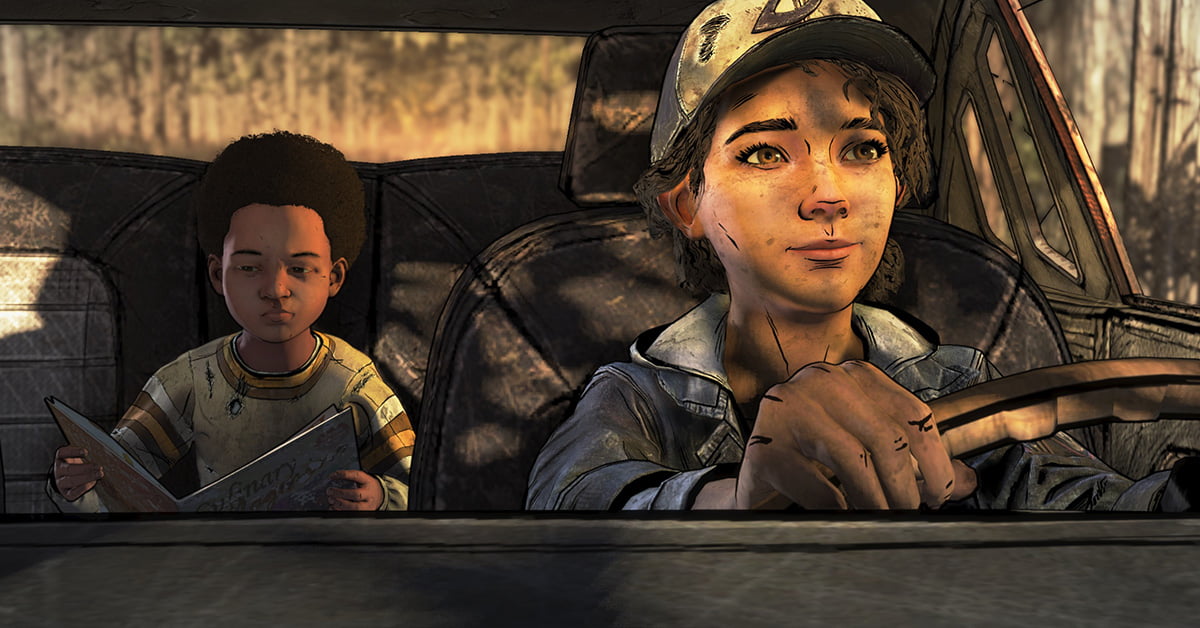People often say I’m fashionably late to parties (just kidding, I never get invited to parties), and the same can be said about my experience with video games. Telltale’s The Walking Dead began in 2012, with the final season releasing in 2018. Six years later, I finally stepped into the post-apocalyptic zombie world, and soon wondered: what on earth kept me from prioritizing this game all these years?
This review is about The Walking Dead: The Final Season. There will be no spoilers for the final season, but if you’ve missed previous seasons, I recommend turning back and starting from the beginning.
Does the Downward Spiral Get Broken?
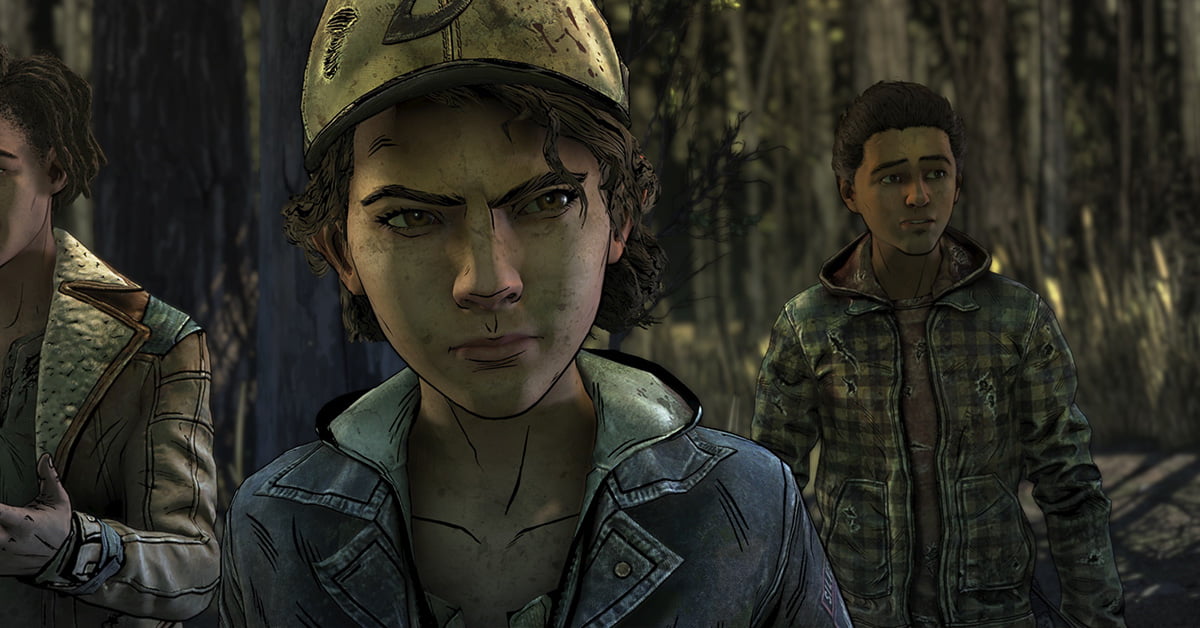
Most people, including myself, agree that Telltale’s The Walking Dead Season 1 is the best of the series. The blossoming bond between the protagonist Lee and the eight-year-old Clementine is emotional and touching to witness, and the two are part of a broad and intriguing cast of diverse characters.
The harsh reality of the The Walking Dead universe—that you shouldn’t get too attached to certain characters—is made clear once again when Lee tragically dies at the end of the first season. From then on, Clementine must fend for herself without her surrogate father. In Season 2, we step into her shoes for the first time.
The new situations, and especially the groups Clementine encounters, never quite managed to captivate me as much as that first experience. Characters came and went, but most failed to leave a lasting impression. However, the return of one of the most fascinating characters, Kenny, gave Season 2 a much-needed boost.
Season 3, A New Frontier, then moved away from Clementine as the protagonist after just one season. While this isn’t necessarily a bad idea, the new cast had big shoes to fill and, in my opinion, didn’t quite succeed. Each season seemed to follow a troubling downward trend. Fortunately, The Walking Dead: The Final Season puts an end to that.
A Return to Form
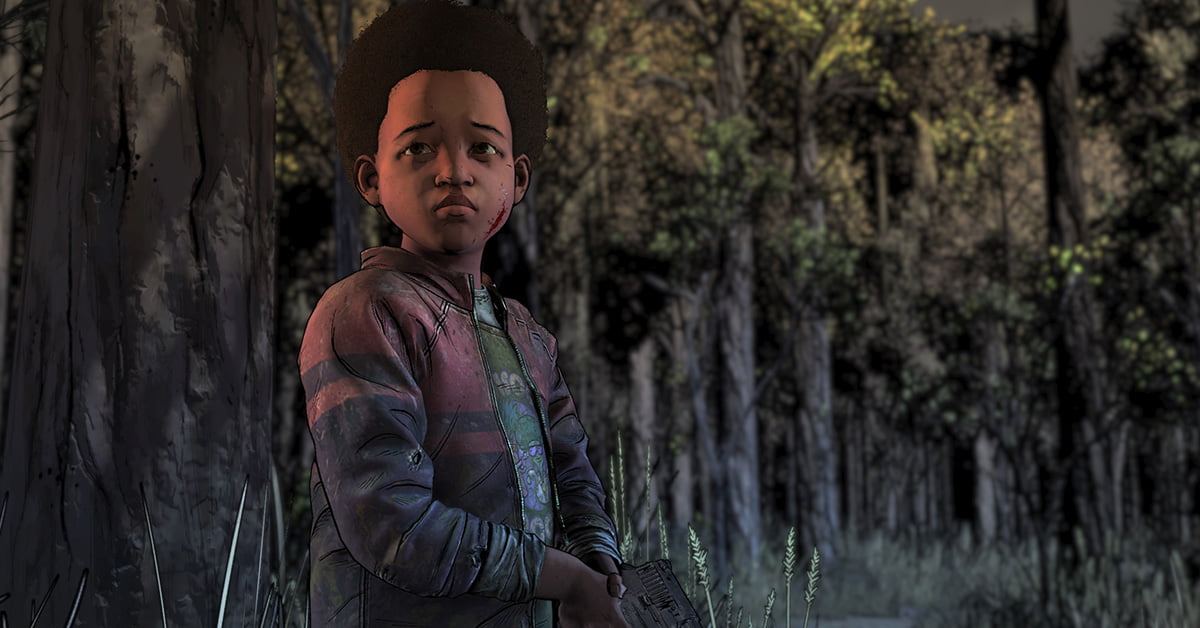
The Final Season takes the bull by the horns and does what is essential: it surrounds Clementine (now 16 years old) with interesting and richly developed characters once again.
One of these characters is A.J., the 5-year-old son of the late Rebecca and Alvin. The circle is complete as Clementine takes on the role of A.J.’s surrogate mother. This dynamic mirrors the relationship between Lee and Clementine, and it does so remarkably well. It’s the dynamic that nearly brought tears to my eyes in Season 1, and it did so again several times in Season 4.
The interactions between the two are generally outstanding. The game managed to make me feel a deep sense of responsibility. No matter what happened, I would be there for A.J. This was not always easy, as the boy struggles with himself and doesn’t always agree with the decisions Clementine makes.
The protective love between them speaks volumes. Fun fact: Every time they expressed their love for each other, my girlfriend was chopping onions in the kitchen. What a coincidence, right?
Unlike previous seasons, this one includes a group of children and teenagers. This brings new perspectives, tensions, and a certain playfulness that adds the lightness the season sometimes needs.
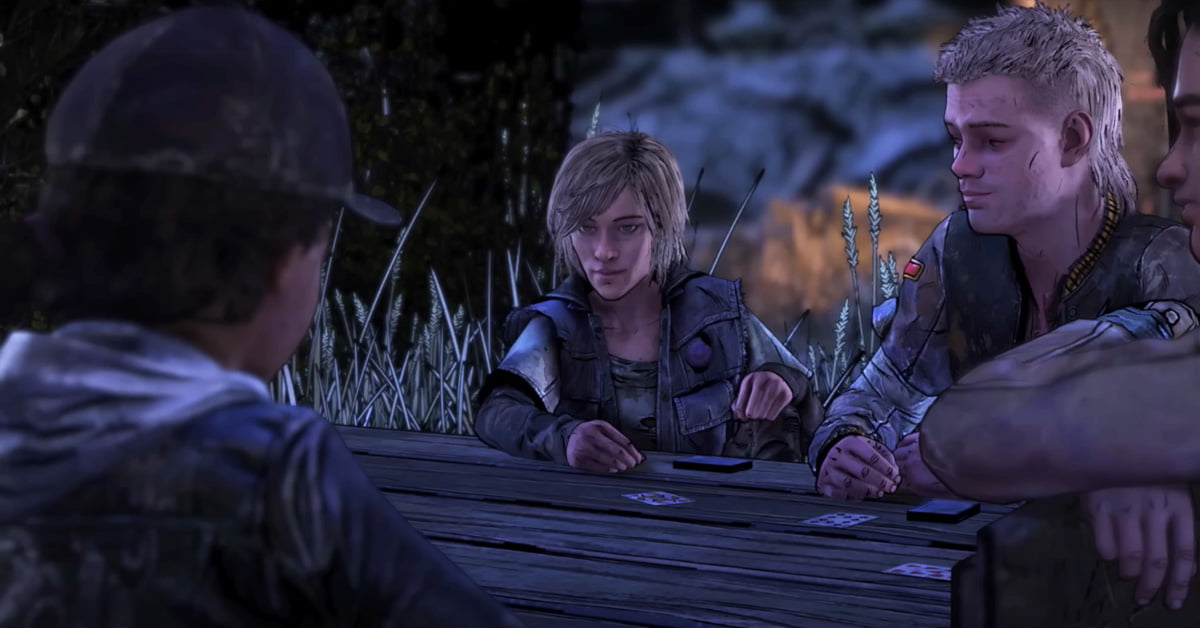
These innocent moments reminded me that we’re dealing with a young group that, despite the apocalyptic world, still wants to play games or celebrate a party. During these events, you get to know the group better, and perhaps more importantly, the group gets to know you better. Personally, I seize every opportunity to nostalgically reflect on the old group, and especially on Lee. Every time he got name-dropped, I felt like Leonardo DiCaprio in that GIF—you know the one.
Gameplay and Decision Making for Two
The gameplay remains largely as we’ve come to expect; you make choices, both in dialogue and actions. A new ‘over the shoulder’ camera brings you closer to the action. Sometimes you explore, searching for items or tools, while at other times you must keep yourself alive through quick time events.
A notable change from previous seasons is that you’re soon warned that your actions will significantly impact how A.J. develops. This adds a new weight to the important decisions you must make. Without A.J., I would have made different choices on several occasions. I found myself occasionally spending a minute weighing my options (when Telltale/Skybound kindly omitted the choice timer).
When dealing with hungry zombies, you generally kick the walker to its knees with one button and then stab it in the head with another. It’s nice to see that Clementine has never forgotten this lesson, learned from Jane (who was in fact an interesting character, it must be said).
The Art Style’s Evolution is Impressive
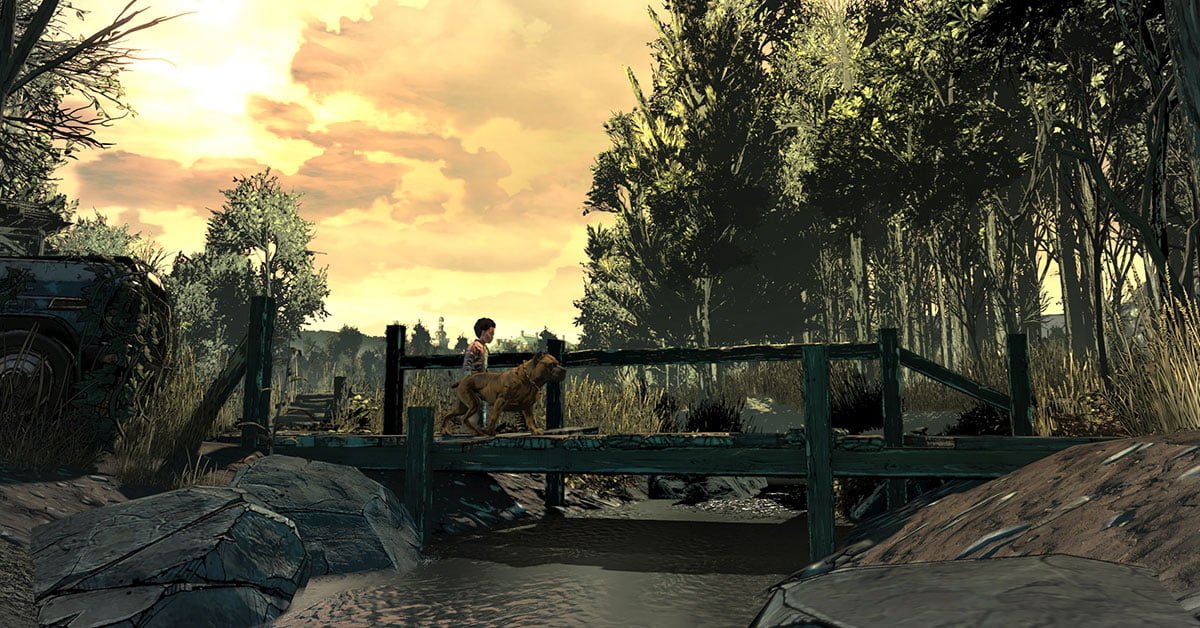
One of the first things that stands out in The Walking Dead: The Final Season is the art style. The graphical leap over the course of the seasons is significant. This isn’t surprising, given the six years between the first and final seasons. However, because the chosen art style was not aimed at photorealism, I didn’t expect it to evolve so dramatically.
The enhanced art style brings emotions to the forefront even more effectively. Not only are the characters visually striking (special shoutout to Louis’ hair, which looks fantastic), but the environments are more convincing than ever. The Final Season sometimes feels like a beautifully crafted painting.
The Illusion of Choice
One persistent issue that I need to highlight is Telltale’s tendency to create the illusion that choices have a real impact. Of course, I understand that a developer can’t design a completely new game for every choice, and that many paths will inevitably converge sooner or later. But it’s misleading to suggest that you have full control.
Extra playthroughs quickly reveal that most choices make little to no difference. While this can be somewhat obscured during the original playthrough, replaying certain sections made me feel that making different choices wouldn’t justify a completely new playthrough.
I was particularly disappointed by the much-touted impact of how you raise A.J. Many of the choices I agonized over for minutes turned out to be not worth the stress, which can definitely be considered an anticlimax.
A First Love?
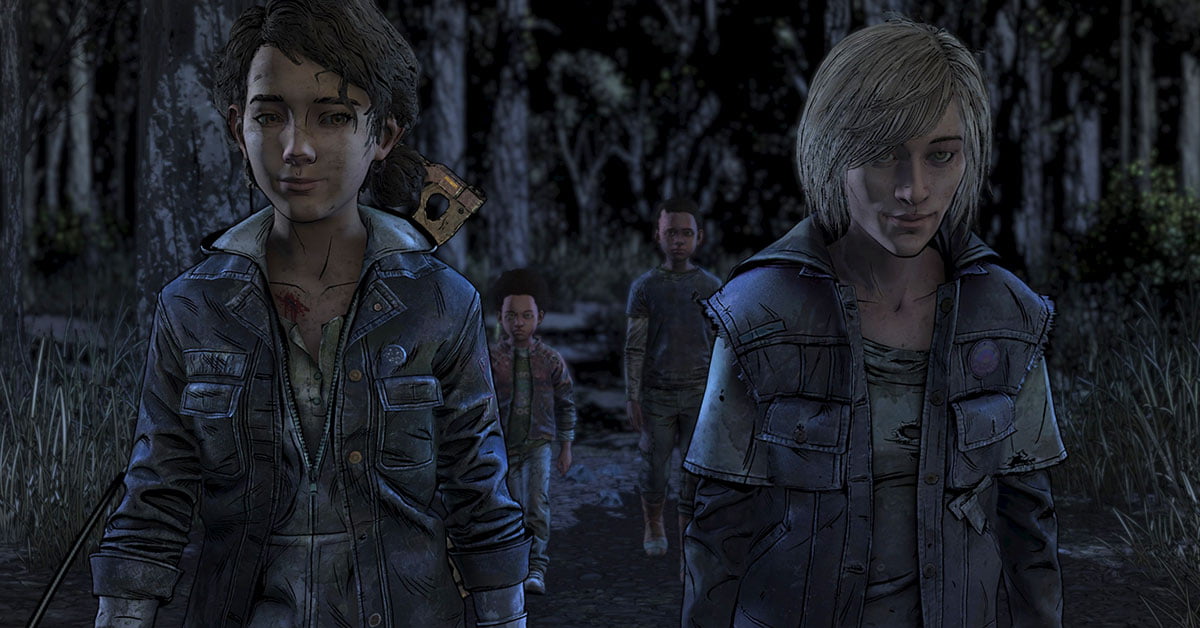
One decision that is actually significant, is whether Clementine develops a special relationship. Little girls grow up, and by introducing us to several peers, the game suddenly presents a small pool of potential romantic interests.
Both available options are intriguing characters with whom you can share emotional moments. The Final Season introduces many characters that I genuinely wanted to keep alive, and a budding romance raises the stakes even higher.
Many games with romantic elements tend to give you a sort of checklist to win someone’s heart—complete three quests for them, and suddenly you have a boyfriend or girlfriend. In The Final Season, however, the romance feels anything but forced.
You get to know your group members organically, spend time with them, and then the spark can ignite. While it might feel a bit rushed, partly due to the season consisting of only four episodes, it fits perfectly with the path we’ve walked so far with Clementine.
The Threat
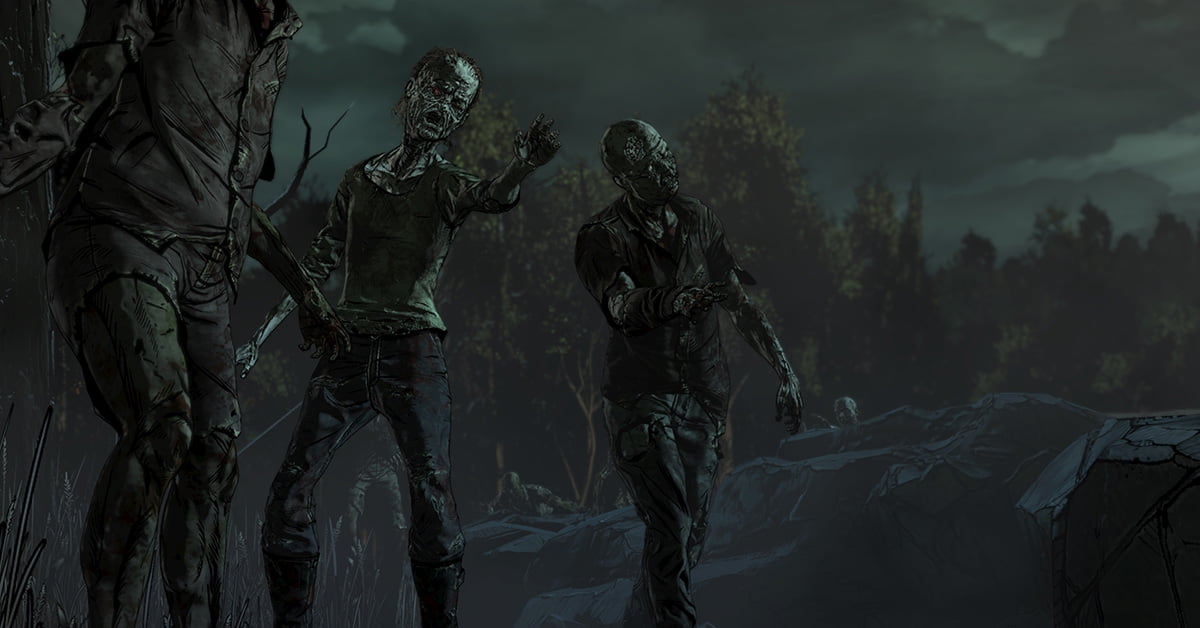
As is fitting in the world of The Walking Dead, danger doesn’t only come from zombies. The depraved humanity often presents a greater and more unpredictable threat, and this final season is no exception.
Without giving too much away, an old acquaintance returns to make your life difficult. Had this been a completely new character, I would have found them to be a suitable antagonist. The villain’s motives are somewhat reasonable, but their actions are drastic, inhumane, and evil. The antagonistic group fits well into the post-apocalyptic world and fulfills its role effectively.
But because the instigator is not a new character, I occasionally felt a sense of powerlessness when reflecting on previous seasons. In my view, I might have deserved a bit more credit for my actions earlier on in the series. It felt as though my previous choices were largely overlooked. Consequently, the return of this character seemed to add little value (no matter how much I enjoy revisiting old acquaintances).
Conclusion
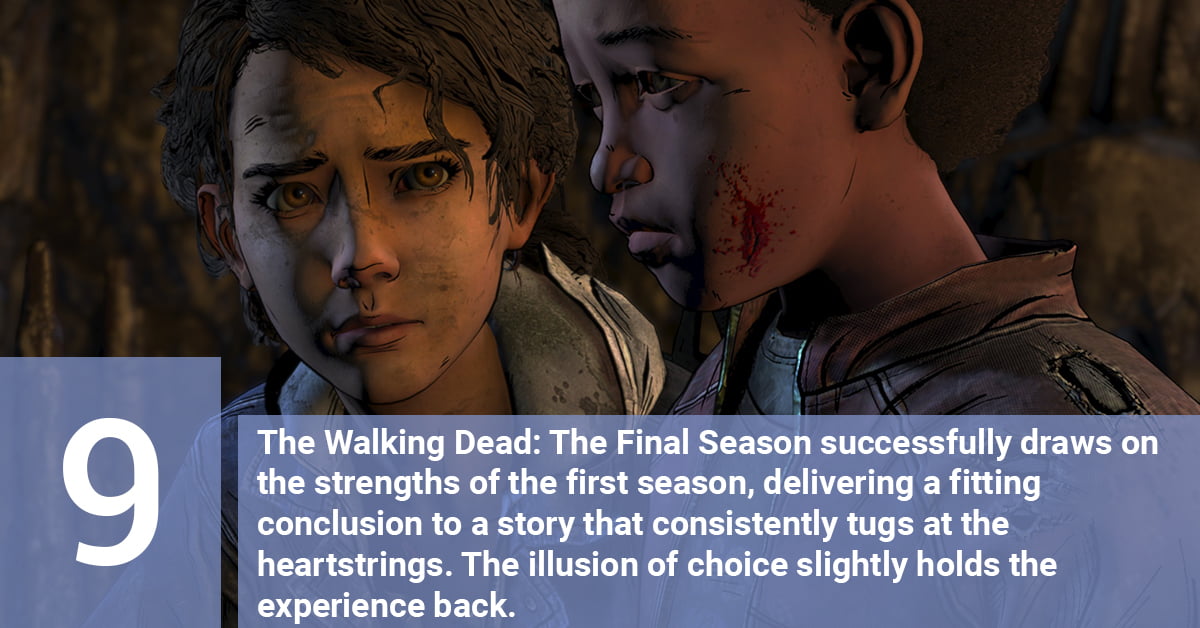
The Walking Dead: The Final Season draws on the successful elements of the first season. By placing Clementine in the role of a surrogate parent, you find yourself responsible not only for her decisions but also for A.J.
The supporting cast, the art style, and the music are all perfectly aligned to convey the necessary emotions at the right moments.
Telltale’s infamous illusion of choice becomes painfully apparent after a new playthrough. Despite the beautiful relationship between Clem and A.J., a lot more could have been done regarding how you raise the boy.
Nevertheless, The Final Season provides a fitting conclusion to Clementine’s story. It accomplishes what it set out to do from the beginning: pulling on your heartstrings, keeping you constantly on edge about whether your beloved characters will make it out alive.

